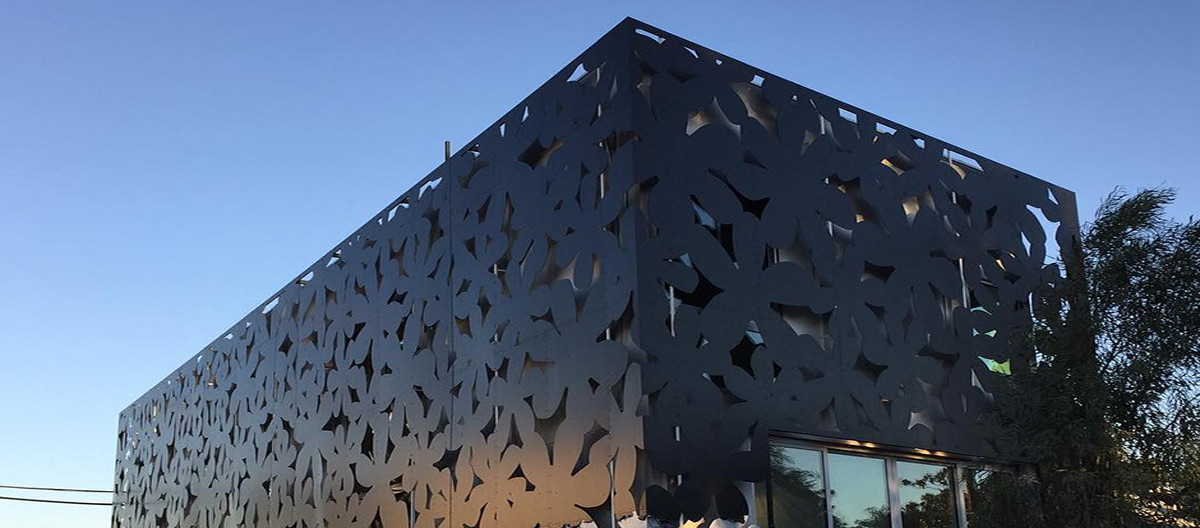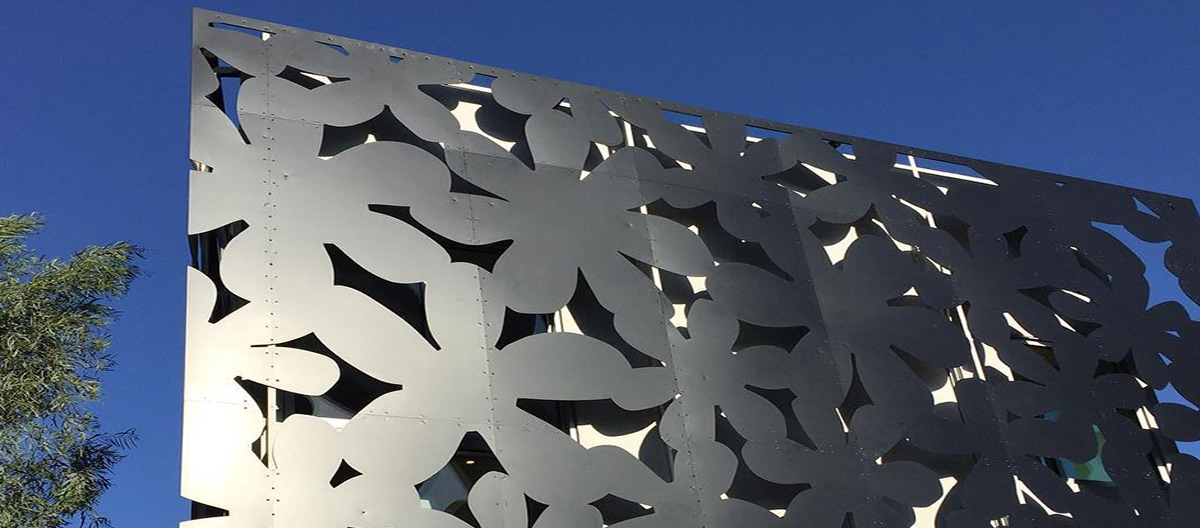Designed and built by Cameron McNall of Electroland, LLC, the Tivoli House in Los Angeles is a project that takes on the challenge of creating an unusual architectural design and finding materials that can support the creative vision. The house, which was completed in January 2017, features a hanging façade that is placed over the residence. For the project, McNall opted to use perforated aluminum composite panels from ALPOLIC. The perforated metal produces a floral pattern, created with the negative space that reveals part of the house behind the façade.
The main challenge of the project stemmed primarily from the screen wall, which hangs independently from the main structure. A nine-inch gap exists between the façade and the house. McNall’s task was to find a material that was lightweight, durable, and able to resist deformation. He found his answer in ALPOLIC’s aluminum composite material (ACM).
Because of the unique design of the façade, it was crucial for McNall to find a material that would not only be durable and long lasting, but also aesthetically pleasing. McNall explained that ALPOLIC’s ACM “…already [has] this beautiful factory finish that will last a long time.”
He further discussed the formability of the product and stated, “…the ability to make these flower forms without damaging it is a very big deal and is very cost-effective for us.”

The unconventional application of the ACM to the project had raised safety concerns, which required approval from the LA Department of Building and Safety before the project could continue. After showcasing the high-performance capabilities of the ACM, ALPOLIC managed to obtain approval, allowing McNall to continue with the Tivoli house.
The end result is a stunning swath of flowers that artistically drape over the residence. A coating of black Valflon was added to the screen, further enhancing the hanging façade. Valspar’s Valfon is a high-performance fluoropolymer that offers exceptional color and gloss retention. The Lumiflon FEVE resin technology employed by Valflon ensures longevity without the issue of UV radiation, which is ideal for Los Angeles’ dry, subtropical climate.
Photos and Information courtesy of ALPOLIC

Categories Architecture